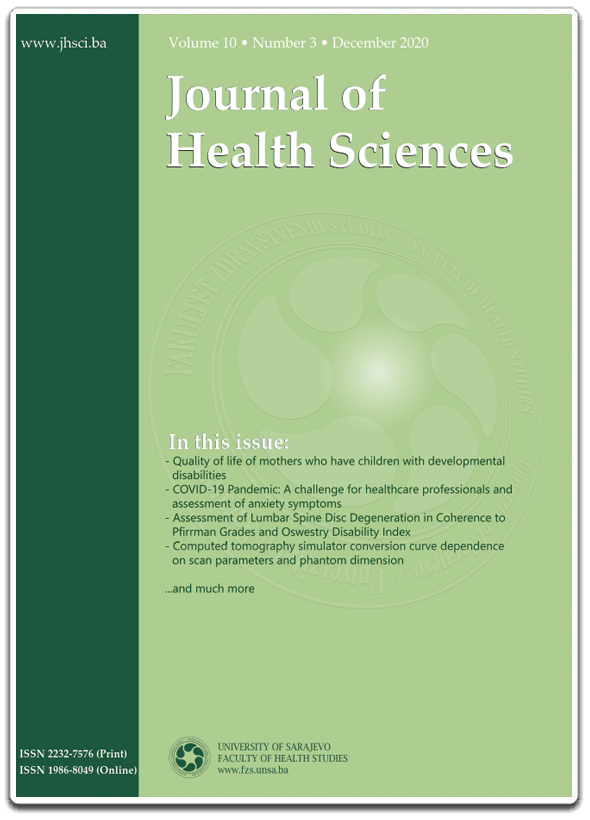Influence of coffee consumption on bone mineral density in postmenopausal women with estrogen deficiency in menstrual history
DOI:
https://doi.org/10.17532/jhsci.2014.194Keywords:
coffee consumption, osteoporosis, premenopausal women, estrogenAbstract
Introduction: Complex etiology of osteoporosis include genetic, hormonal, environmental and nutritional factors. The aim of this study was to examine influence of coffee consumption on bone mineral density in postmenopausal women with estrogen deficiency in menstrual history.
Methods: This prospective study included 100 postmenopausal women, aged 50-65 years living in Sarajevo area, with estrogen deficiency in their menstrual history. The controlled clinical trials were conducted. Two groups were formed (based on bone mineral density values). The examination group included 50 women who had osteoporosis, while the control group included 50 women without osteoporosis (osteopenia, normal bone mineral density). The lumbar spine and proximal femur bone mineral density was measured by Dual–Energy X–ray Absorptiometry using Hologic QDR-4000 scanner. Coffee drinking habits were assessed for each subject.
Results: The average daily intake of coffee in women with estrogen deficiency in menstrual history was at 267.6 ml in the examination group and in the control group 111.6 ml. The difference in the average daily intake of coffee between the two groups was statistically significant (p < 0.001). There was registered significant correlation between intake of coffee and bone mineral density in examination (p < 0.01) and in control group (p < 0.05).
Conclusion: This study indicates that coffee consumption is a risk factor for osteoporosis in postmenopausal women, aged 50-65 years living in Sarajevo area, with estrogen deficiency in their menstrual history. It was shown that the effects of coffee on bone mineral density are dose-dependent.










